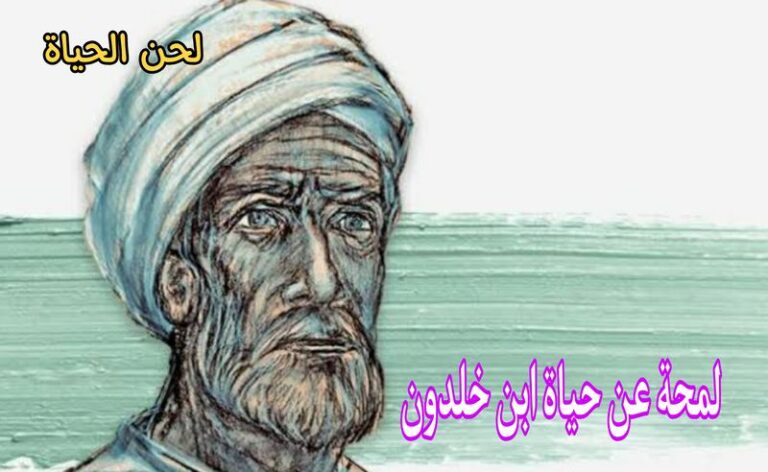سلسلة دروس تعليم اللغة الإنجليزية ودرس جديد
الدرس السادس و العشرون
الظروف Adverbs
– الظرف : كلمة لها وظائف كثيره ومتعدده وقد تتعلق بالزمان , المكان والحال … الخ وهي تشكل القسم الرابع من اقسام الكلام , حيث انها ترتبط ارتباطاُ قوياً بالصفات , لان معظم الظروف يتم اشتقاقها من الصفات بأضافة اللاحقه (ly) الى نهاية الصفة . والعبارة الظرفيه قد تُشير الى مايلي :
Manner – الحال
Those flowers grow quickly, don’t they?
Place- المكان
Sign here please.
Time – الزمان
He came very early.
Duration- الفتره الزمنيه
No, I’m not staying there permanently.
Frequency عدد المرت
I often go and see them.
Degree – درجة الحدوث
I was great relieved when we were finally rid of her.
Evaluative- الاحكام والتعليقات
I stupidly forgot to mention the meeting to him.
Viewpoint – وجهة نطر
I personally don’t think you would hate it, Ali.
انواع الظروف
– توجد اربعة انواع من الظروف هي كالتالي :
1 – الظروف المشتقه من الصفات بأضافة ( ly ).
2 – الظروف التي لها نفس شكل الصفات , اي ثابته لا تتغير.
3 – الظروف التي تستخدم مع زمن المضارع.
4 – الظروف التي ليس لها شكل مماثل للصفات.
أولا – الظروف التي يتم اشتقاقها من الصفات بأضافة (ly) :
bad – badly
easy – easily
heavy – heavily
real – really
sad – sadly
Careful – carefully
Final – finally
Polite – politely
ثانيا – الظروف التي لها نفس شكل الصفات :
fast
daily
hard
fast
long
low
late
early
ثالثا – الظروف التي تستخدم مع زمن المضارع :
generally
always
usually
sometimes
often
seldom
normally
occasionally
– الظروف التي يتم اشتقاقها من الصفات بأضافة (ly) :
قواعد اشتقاقها :
1 – الصفات التي تنتهي ب ( y ) وال ( y ) مسبوقاً بحرف صحيح , يحذف ال ( y ) ويضاف (ily) الى الصفة لتحويلها الى ظرف مثل :
easy- easily
lucky- luckily
happy- happily
– ولكن هناك استثناءات مثل :
shy- shyly
dry- dryly
2- الصفات التي تنتهي ب ( le ) فعند تحويلها الى ظرف , يحذف ( le ) ويضاف ( ly ) اليها مثل :
possible- possibly
probable- probably
terrible – terribly
whole – wholly
3- بعض الصفات التي تنتهي ب ( e ) ,فعند تحويلها الى ظروف يبقى ال ( e ) ويضاف (ly) الى نهايتها كما في الامثلة التالية :
active – actively
brave- bravely
polite- politely
4- بعض الصفات التي تنتهي ب ( ue ) ,فعند تحويلها الى ظروف يحذف ال ( e ) ويضاف (ly) الى نهايتها كما في الامثلة التالية :
due- duly
true – truly
5- بعض الصفات التي تنتهي ب ( ic ) ,فعند تحويلها الى ظروف , يضاف لها (ally) الى نهايتها والصفات التي تنتهي ب (ical) يضاف اليها فقط ( ly ) كما في الامثلة التالية :
automatic – automatically
basic- basically
economic – economically
economical- economically
energetic- energetically
fantastic – fantastically
historic- historically
historical- historically
scientific – scientifically
electrical – electrically
heroic- heroically
– ولكن هناك استثناءات مثل :
public- publicly
6- اخيراً , هذه مجموعه من الامثلة ستساعدك على فهم الظروف المشتقه ب ( ly ) :
Larry always washes his car very carefully.
Finally we found the address we were looking for.
Donna proudly showed us her new home page.
I want to get this over and done with as quickly as possible.
It’s fairly obvious that the two leaders met secretly for peace talks last week.
– ملاحظات هامه :
1- بعض الظروف يتم اشتقاقها من التصريف الثالث للفعل (Past Participle) بأضافة ( ly )الى نهاية الفعل كما في الامثلة التالية :
marked- markedly
alleged- allegedly
assured – assuredly
undeserved- undeservedly
2- بعض الظروف يتم اشتقاقها بأضافة بعض اللواحق الخاصه اليها وهي كالتالي :
– wards–> Backwards , downwards , forwards ,upwards .
– ways –> sideways
– wise –> clockwise
– style–> (European – style) , (cowboy – style) (اسلوب حياة)
– fashion –> (Chinese – fashion) , (schoolboy – fashion)
3 – الظروف التي لها نفس شكل الصفات (اي ثابته لا تتغير) وهي الكلمات التي تستعمل كصفات وظروف في نفس الوقت , حيث لها نفس الشكل مثل :
الصفة (Adjective) :
This is a (cheap) book.
Is this a (daily) paper?
I took an (early) train.
We had a (late) dinner.
The (far) end of the park.
This is a (fast) car.
Mr. Omer a (hard) worker.
It was (still) eveningin April.
We went on a (long) journey.
The man spoke in a (low) voice.
The play was a (near) success.
Give me a (straight) answer.
الظرف (Adverb) :
I bought it (cheap).
We meet (daily). (weekly…etc)
I got up vary (early).
He came home (late).
Have you come (far)?
She drives too (fast).
He worked (hard) all his life.
Will you please sit (still)?
I’m sorry it took so (long).
We flew (low) over the hills.
The time draws (near) when we must go.
We went (straight) home.
– الظروف التي تستخدم مع زمن المضارع :
– هذا النوع من الظروف يذكر عادة بين الفاعل والفعل الرئيسي وغالباً ما يستعمل مع الزمن المضارع مثل :
A man (often) chooses a wife who is like his mother.
We (always) wash our hands before dinner.
I (usually) have a walk in the evening.
I (often) go and see them.
We (sometimes) visit the museum.
4- الظروف التي ليس لها شكل مماثل للصفات :
– بعض الصفات مثل :
(friendly , impossible , lively )
لا توجد لها ظروف مماثله , لذا تستخدم بطريقه اخرى كما في الامثلة التالية :
– الصفة :
She wrote a friendly answer.
We had a lively discussion.
Impossible.
– الظرف :
She answered in a friendly way.
He spoke in a lively manner.
Not possibly (or) impossibly.
– استعمالات الظروف :
– يستعمل الظرف لوصف الفعل مثل :
She drives carefully.
She answered rudely.
He writes well.
He act badly.
We miss you terribly.
She runs quickly.
– يستعمل الظرف لوصف الصفة مثل :
This is perfectly true.
It’s awfully nice of you to call.
I was completely wrong.
The answer was dreadfully stupid.
The mountain is dangerously steep.
He is completely crazy.
– يستعمل الظرف لوصف ظرف اخر مثل :
She writes extremely well.
He speaks awfully slowly.
The business in Holland went remarkably smoothly.
She’d worked extremely hard.
She sings incredibly beautifully.
It seems to affect different people completely differently.
– يمكن للظرف ان يصف عبارة اسميه , عباره كامله او حتى جملة كامله مثل :
Only someone very stupid would say that. (عبارة اسميه)
We’ve got our silver wedding soon, so we’re planning a few days away.
Frankly, when he smiles, it terrifies me. (جملة كامله)
Luckily, I’d read the book before so I knew what it was.
لمتابعة أهم الدروس والملاحظات عن اللغة الانجليزية ادخل على الرابط و ادخل إلى النتيجة الأولى 👇
دروس اللغة الانجليزية في موقع لحن الحياة
بعض الظروف تأخذ شكلين ب ( ly ) او بدون ( ly ) :
: (ly) ظــــروف بـــدون
I read the article out loud.
Read aloud.
Don’t come too close.
Take it easy, man!
She worked hard.
He played high and lost a fortune.
We arrived late.
They searched high and low.
She lives quite near.
We’ll do it right now. (right away)
He stopped short.
My name’s spelt wrong.
They went direct to Seattle.
: (ly) ظــــروف مـــع
The audience laughed loudly.
She speaks loudly.
They are closely related.
We easily beat our opponents.
I hardly believed it.
I was highly amused.
She’s not been well lately.
He’s lowly paid.
The train is nearly full.
He’s rightly upset.
I’ll be back shortly.
He was wrongly accused.
He came home directly after the match.
– الظروف كأجوبة قصيرة :
– تستخدم الظروف كردود واجوبه قصيره لبعض الحورات , كما في الامثلة التاليه :
A: That’s a fair comment, isn’t it?
B: Absolutely. (بالتاكيد)
A: It’s more for the kids, isn’t it?
B: You think so?
C: Yeah, definitely. (بالتاكيد)
A: He might have been away at the time.
B: Well, possibly. (من المحتمل)
A: Didn’t you think it was just a joke?
B: Yeah, probably. (من المحتمل)
A: She’s obviously going to tear it up and throw it in the bin.
B: Precisely. (بالضبط)
A: Well, you wear a little black dress to clubs or to a party.
B: Yeah, exactly. (بالضبط)
A: Not easy, mind you, accommodating everything in our bedroom. (الاسكان)
B: Well, yes, quite
A: Have you been in smaller classes before?
B: Not really.(ليس حقاً , في الواقع لا) (شائعه جداً)
To a waiter ( الى النادل)
A: Can I have the bill please? (قائمة الحساب)
B: Certainly (بالتاكيد)
A: it’s hot in here.
B: Yes, very
A: She’s a very bright kid. (طفل ذكي)
B: She is, yes, incredibly. ( بشكل لا يصدق)
– درجات المقارنه للظروف :
– يتم مقارنة الظروف بنفس الطريقة التي تعلمناها مع الصفات ( راجع درس درجات المقارنه) وهذا مثال على ذلك :
Positive / Comparative / Superlative
fast / faster / the fastest
hard / harder / the hardest
soon / sooner / the soonest
carefully / more carefully / the most carefully
quickly / more quickly / the most quickly
slowly / more slowly / the most slowly
badly / worse / the worst
well / better / the best
late / later / the latest , last




